I love planting a row of sunflowers along my vegetable garden fence. Their tall stalks add another level to the garden, and their large, yellow flowers bring sunny cheer.
More than visual interest, though, sunflowers provide other benefits to the garden. They attract bees and other pollinators, which are essential for crops like squash and cucumbers. Additionally, the University of Virginia has found sunflower roots can even help remove toxic metals from the soil. Talk about a plant working overtime.
But not all plants get along well with sunflowers, so it’s important to know what and what not to plant next to your sunflowers.
Finding the Right Companions

Image Credit: Shutterstock.
It’s time to find some friends for your sunflowers. After years of planting sunflowers, I have figured out what to plant, and what not to plant with my flower. I also consulted expert sites to gather more information about what works well with sunflowers and what should be avoided.
To receive the most benefits from sunflowers, plant them alongside some of their best friends, whether vegetables, herbs, or flowers.
1. Alliums
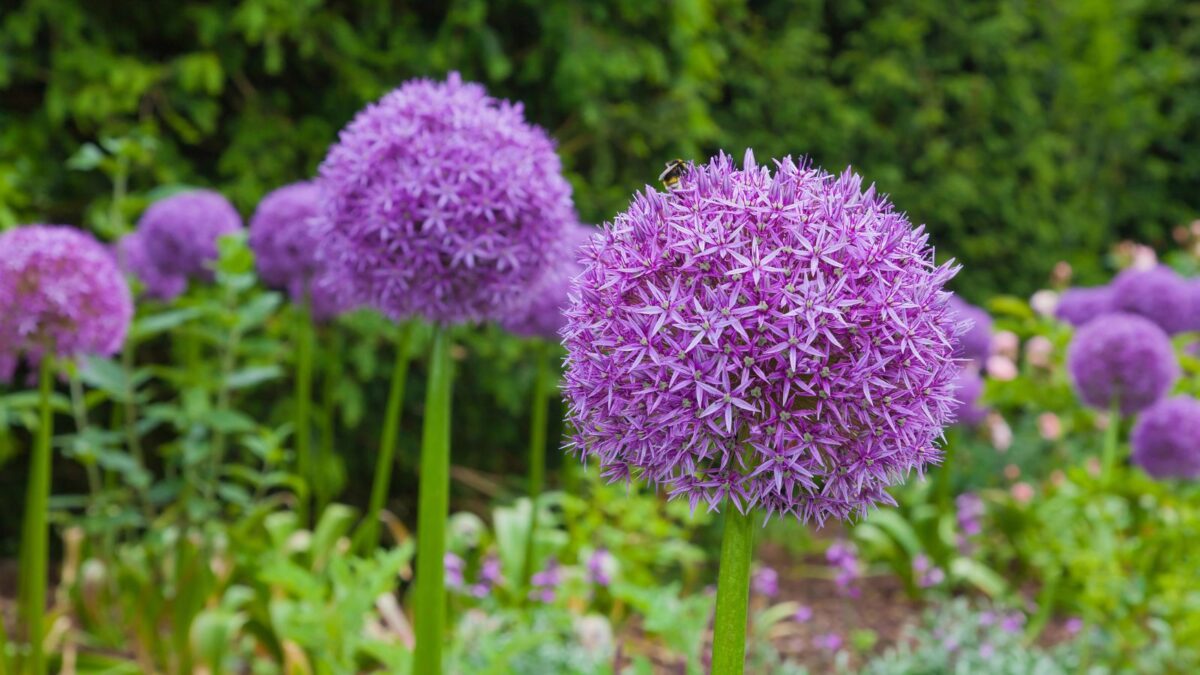
Image Credit: Deposit Photos.
Onions, garlic, chives, leeks, and other alliums help repel pests with their pungent odor. This makes them great partners for sunflowers, which attract beneficial insects even as the alliums deter undesirable insects. Their roots also occupy different levels of the soil, which means they won’t compete with each other for nutrients. Growing allium vegetables is easy!
2. Basil
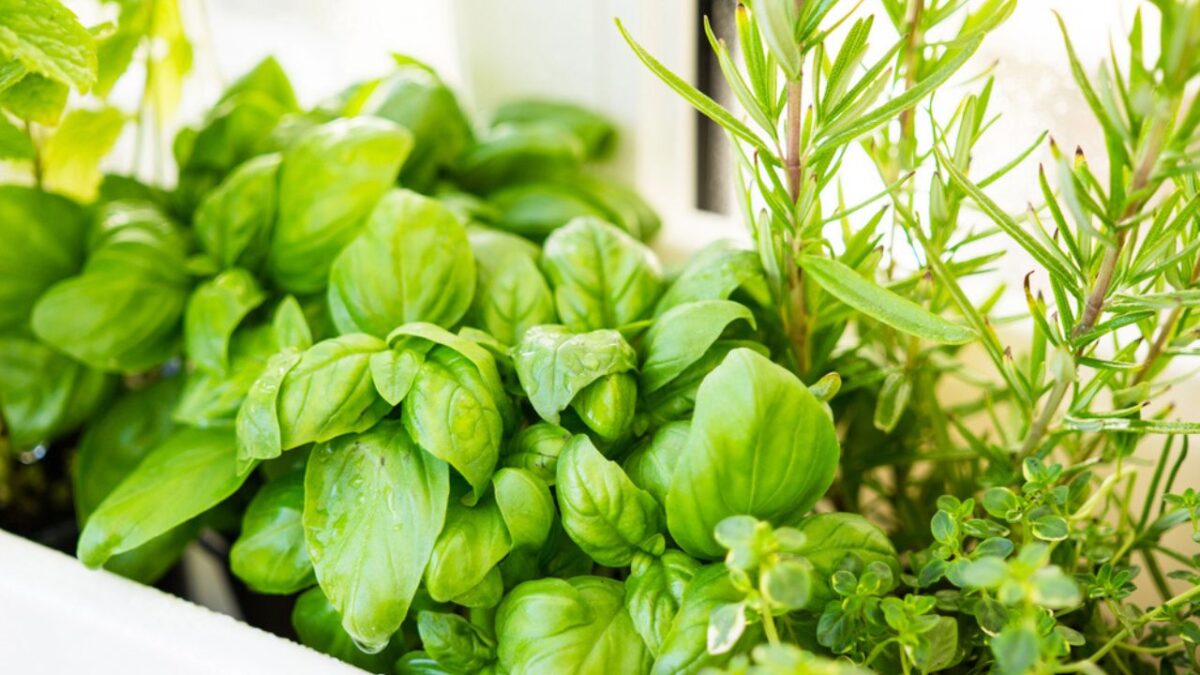
Image Credit: Deposit Photos.
Basil appreciates a dappled shade to protect it from the hot afternoon sun, and sunflowers are perfect for this. Plus, basil’s strong scent helps repel some pests, and the flowers attract pollinators. Plant basil, sunflowers, and tomatoes or peppers together for an excellent companion grouping.
3. Crimson clover
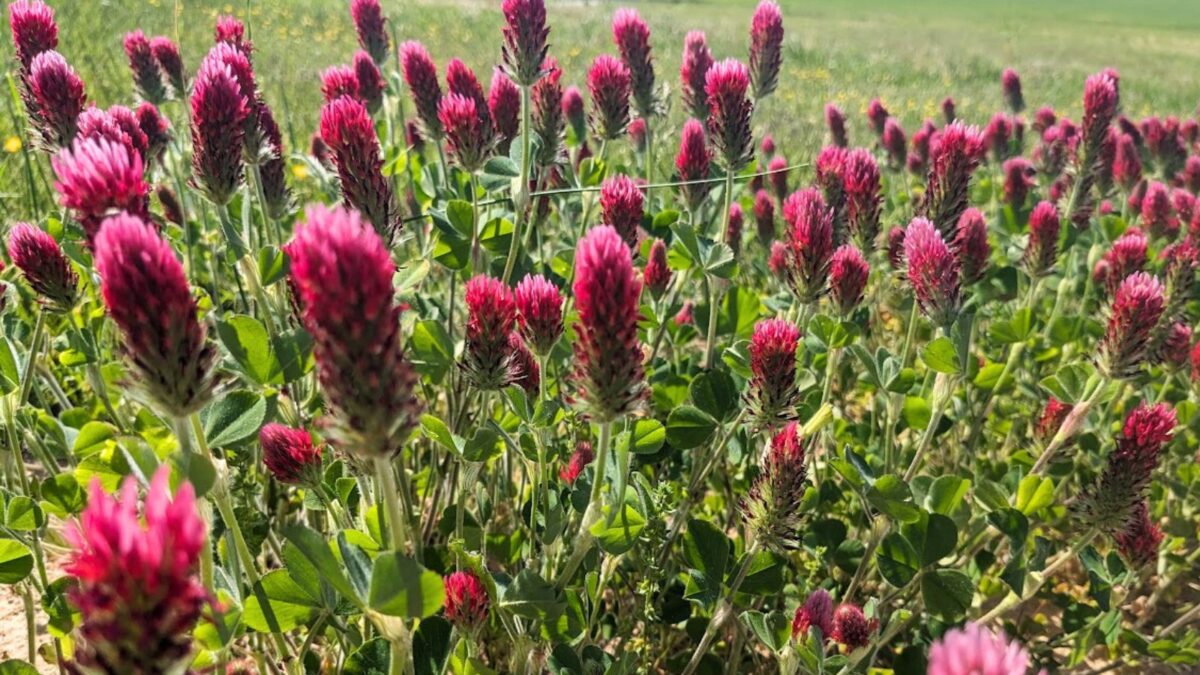
Image Credit: Backyard Garden Lover.
Crimson clover is an excellent annual groundcover or cover crop, according to Michigan State University. As a nitrogen fixer, it makes nitrogen more readily available for other plants, like sunflowers. Plus, its sprawling foliage prevents weed growth, and its lovely little flowers attract pollinators and other beneficial insects, making it a great complementary companion for sunflowers.
4. Corn
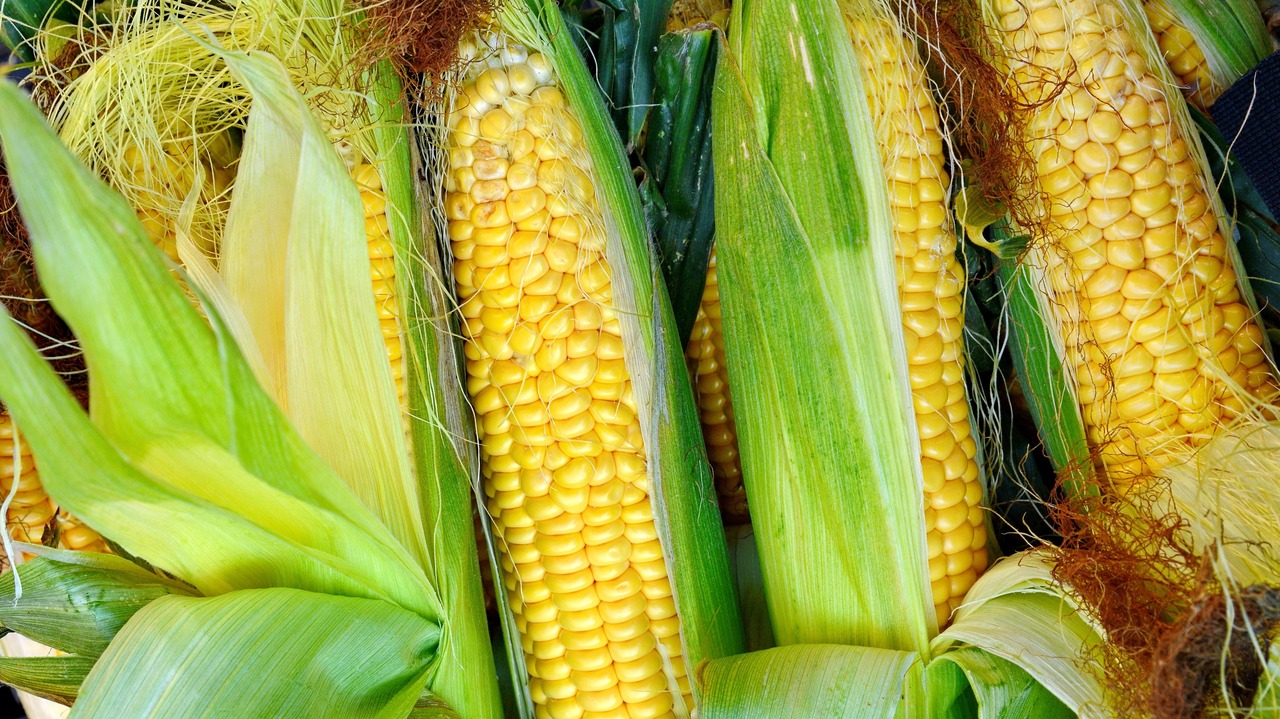
Image Credit: Shutterstock.
Corn and sunflowers make surprisingly good companions. Being tall, they don’t compete for sunlight, and their roots also don’t compete for nutrients. Instead, sunflowers attract ladybugs and pollinators, and some claim they even improve the flavor and yield of corn.
5. Cucumbers
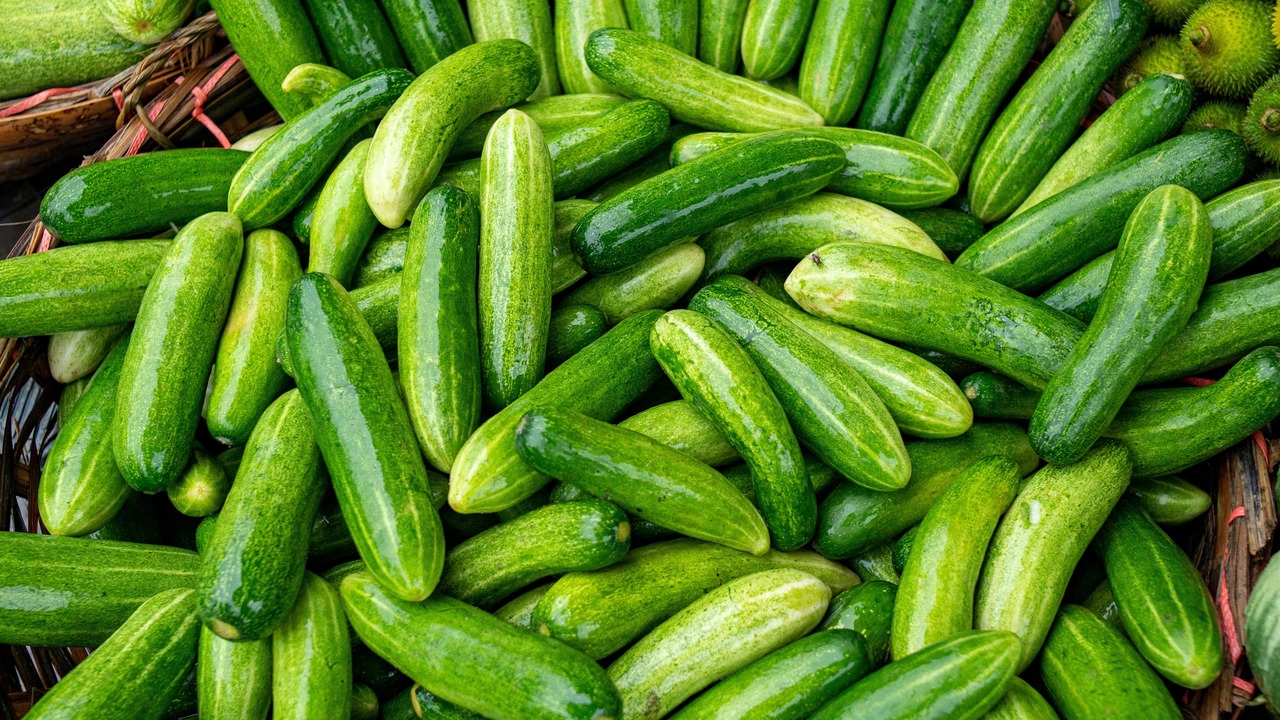
Image Credit: Shutterstock.
Last year, one of my sunflowers unintentionally became a climbing pole for some cucumbers that didn’t have a tall enough trellis, and that sunflower did a great job as a support! If you plant sunflowers as cucumber supports, you won’t have to worry about pounding in any stakes. Just give the sunflowers a couple of inches’ head start. Sunflowers also provide shade from the hot summer sun and attract beneficial insects.
6. Lettuce

Image Credit: Shutterstock.
Lettuce makes an excellent edible ground cover under sunflowers. Its broad leaves prevent both weed growth and evaporation. And if you plant the sunflowers densely enough, they can provide enough cooling shade to help keep the lettuce from bolting in the summer heat.
7. Marigolds
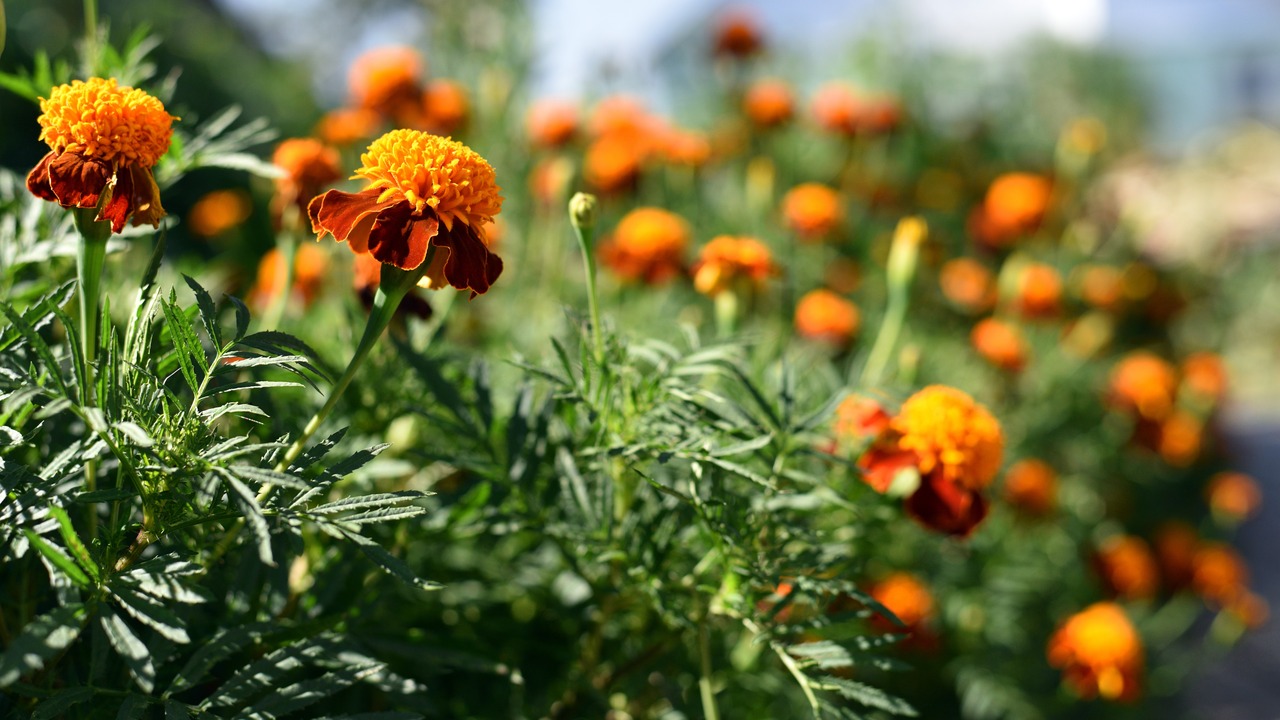
Image Credit: Shutterstock.
The poster child of companion plants, marigolds pair with sunflowers as with most plants in the garden. These shorter, bushier annuals complement the sparser, taller sunflowers beautifully. They also make a great team: while sunflowers attract beneficials, marigolds repel pests.
8. Peppers
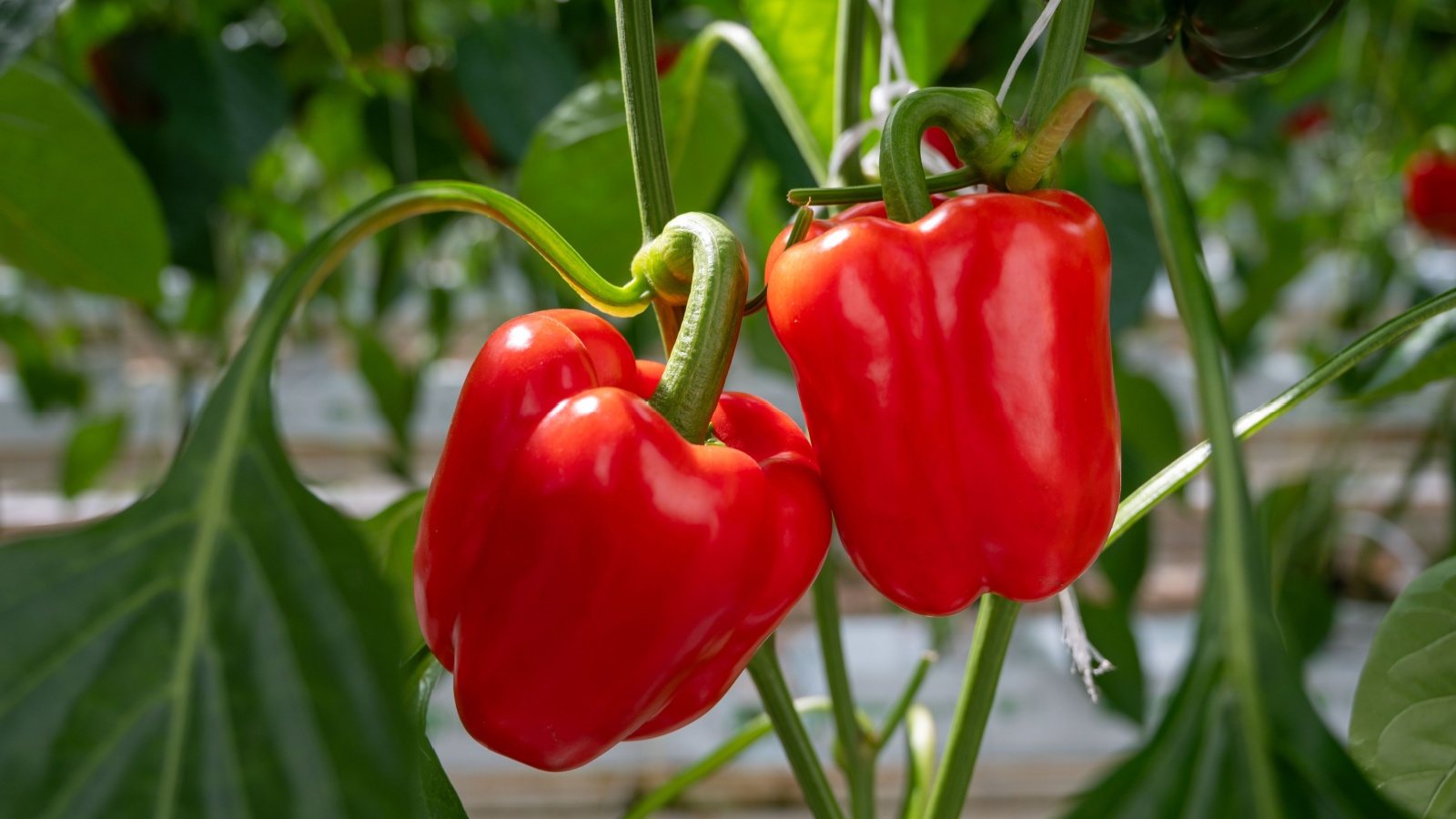
Image Credit: Shutterstock.
I find pepper seeds can be difficult to germinate, so when I do seedlings to grow, I want to protect those precious little pepper plants! Luckily, sunflowers attract ladybugs and other predatory insects that feed on pepper pests, like aphids.
A sunflower and marigold border would look lovely next to a pepper patch, and the peppers would look lovely, too, with all that pest protection.
9. Pumpkins and Winter Squash

Image Credit: Backyard Garden Lover.
Pumpkins and other winter squash act as living mulch for sunflowers, and together they make a pretty autumn scene. The broad leaves of these vining squash serve as a living mulch, suppressing weeds and retaining moisture in the soil. In turn, sunflowers attract pollinators essential for the fruit production of squash plants.
10. Tomatoes
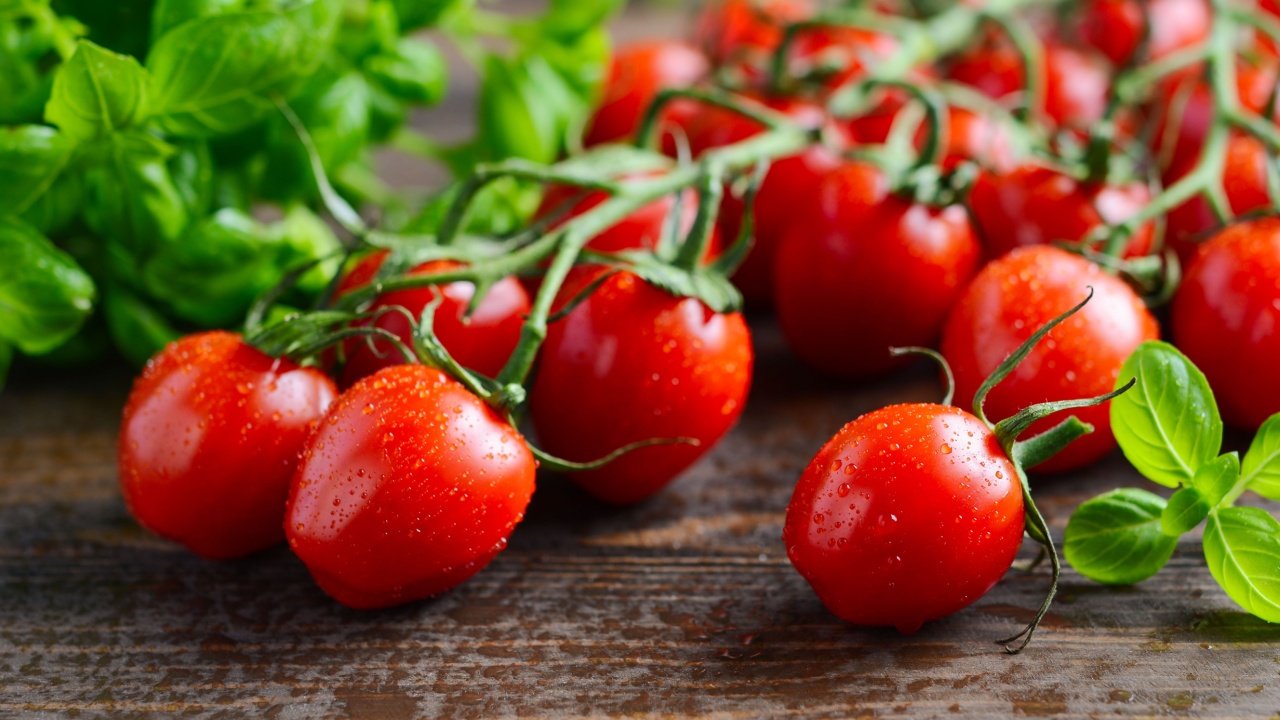
Image Credit: Shutterstock.
Like peppers, tomatoes benefit from the predatory insects that sunflowers attract. Add basil for a powerful trio, as mentioned above. In addition to repelling insect pests with its strong aroma, basil also might improve the flavor of tomatoes, according to some gardeners.
11. Zucchini and Summer Squash
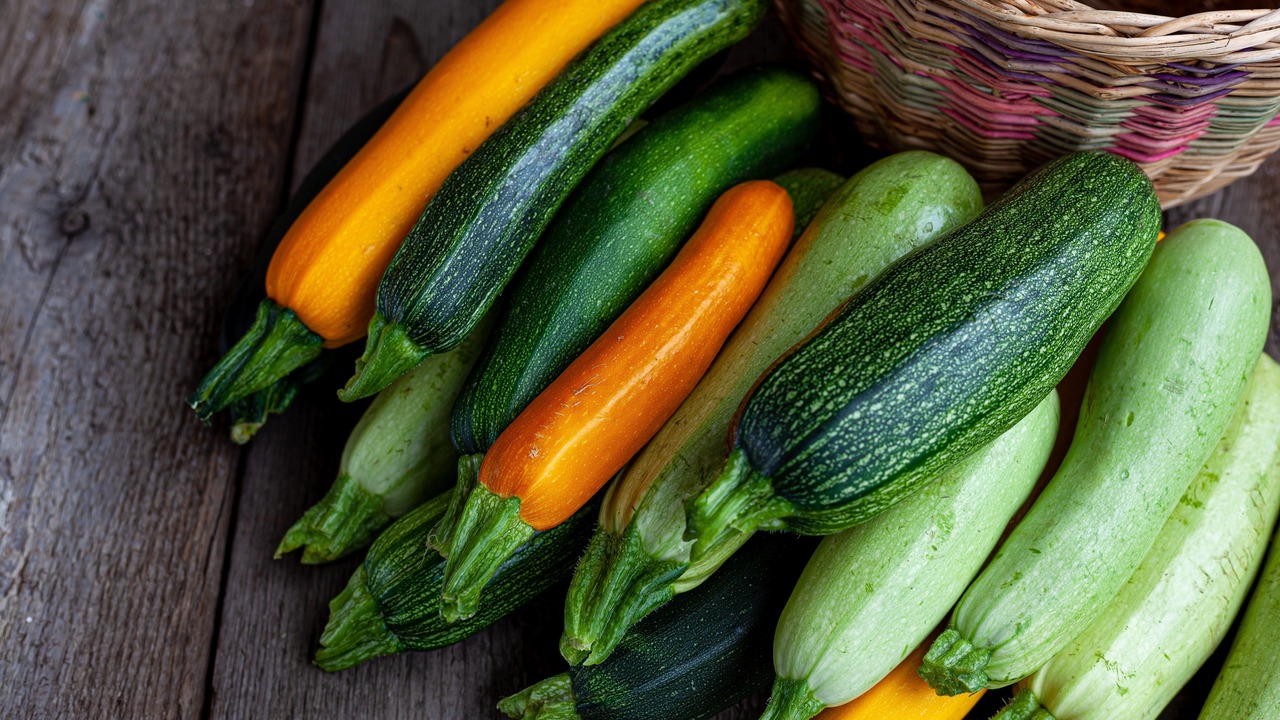
Image Credit: Shutterstock.
Like their winter squash cousins, zucchini and other summer squash need pollinators to set fruit. Sunflowers, of course, will help attract these essential insects. And while summer squash plants don’t vine, they still have large leaves that do an excellent job of preventing weeds and keeping the soil moist.
Worst Companion Plants for Sunflowers: 1. Fennel
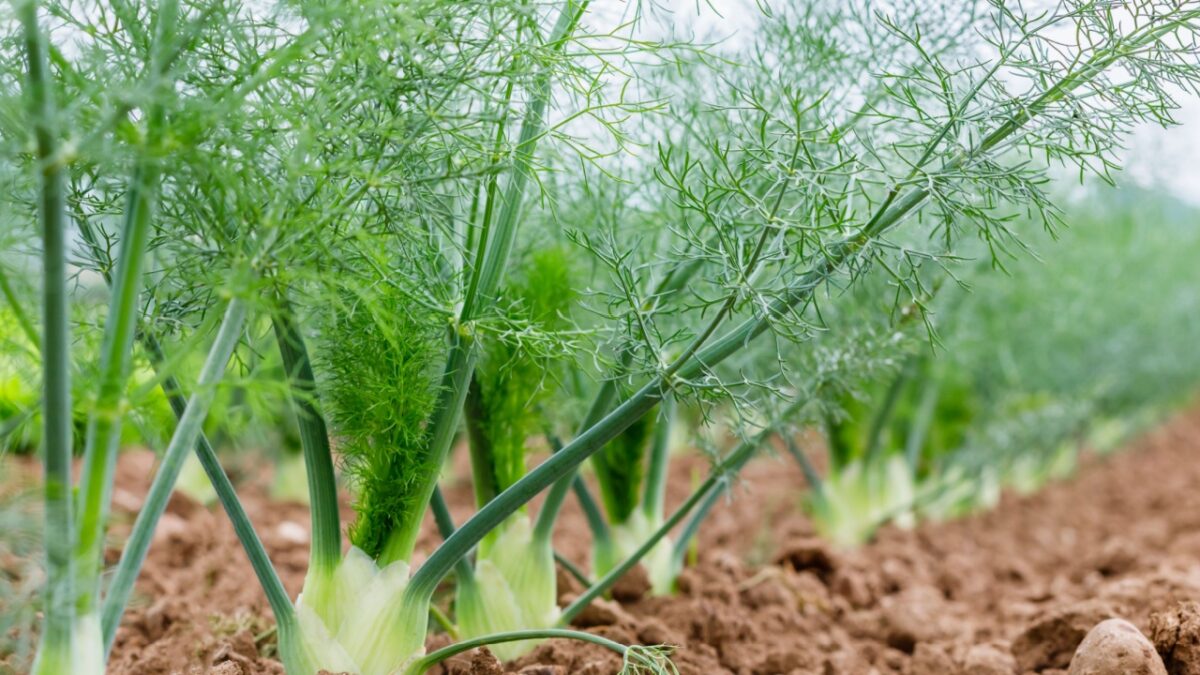
Image Credit: Shutterstock.
While many garden plants grow well with sunflowers, benefiting from their presence and providing benefits in return, a few plants should not be planted near sunflowers.
Fennel is the hermit of the vegetable garden. It prefers to grow alone, inhibiting the growth of plants that dare to grow too near. Help keep the curmudgeonly fennel — and all your other plants — happy by designating a separate area for it.
2. Hyssop
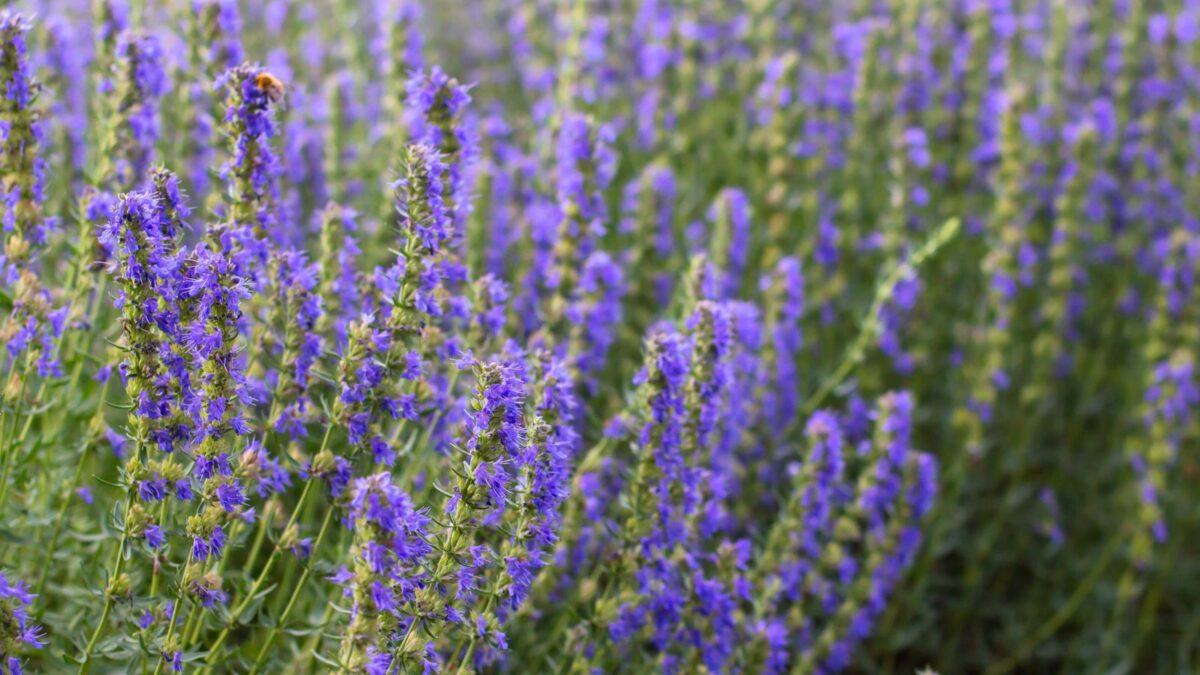
Image Credit: Deposit Photos.
A large plant, hyssop, requires lots of space and plenty of water. If grown with sunflowers, it might compete with them for resources. While these two plants would look attractive together, it is best to locate them in different parts of the garden.
3. Potatoes
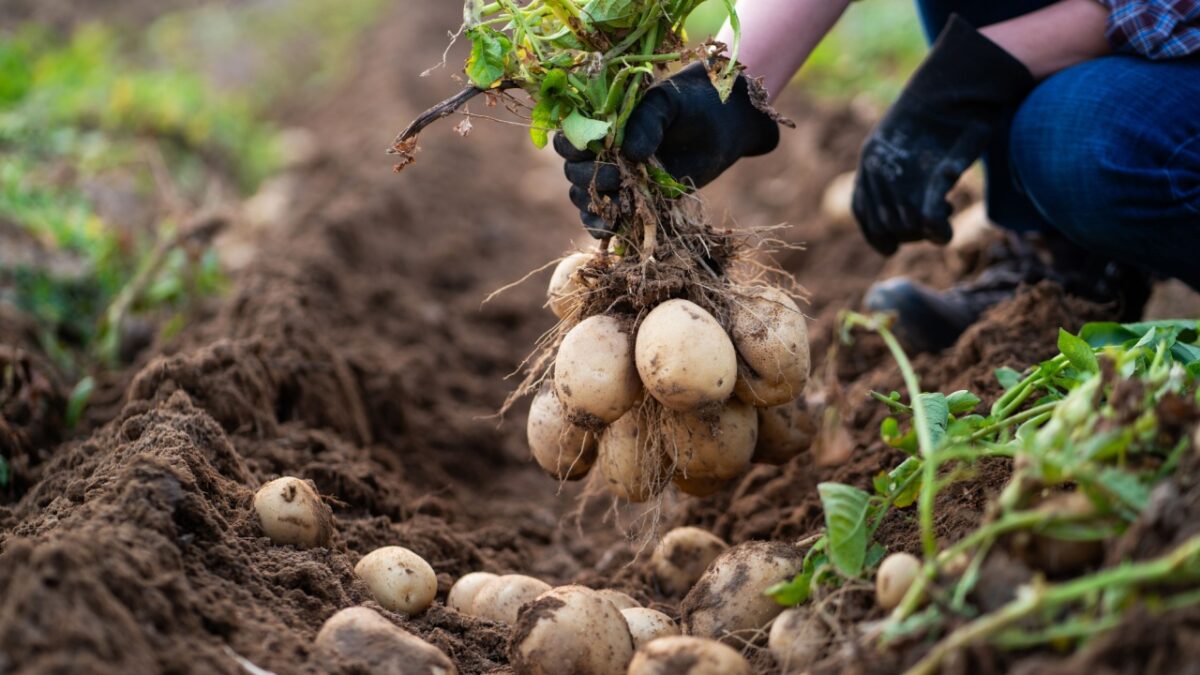
Image Credit: Shutterstock.
Sunflowers have some allelopathic properties, inhibiting the germination of potatoes and even stunting their growth. In addition, sunflowers and potatoes share susceptibility to verticillium wilt, which means the disease could easily spread from one to the other if they are planted close together.
Time for Your Sunflowers to Thrive

Image Credit: Shutterstock.
Sunflowers provide beauty and function in the garden, especially when paired with the right friends. I hope you feel inspired to add some of these tall, sunny plants to your garden!

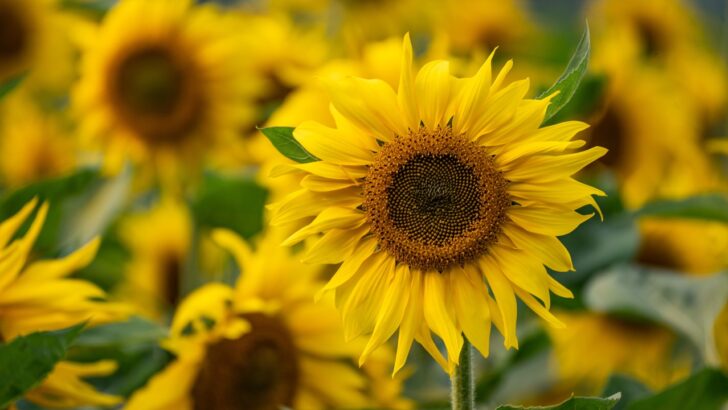

9 Best Companion Plants For Cilantro (And 4 To Avoid)
Friday 30th of June 2023
[…] Check out these other sunflower friends! […]
11 Best Companion Plants For Cucumbers (And 6 To Avoid)
Friday 30th of June 2023
[…] Here are more companion plants for sunflowers. […]